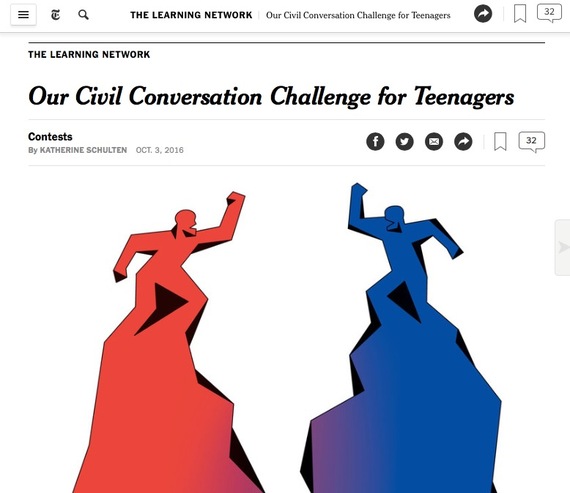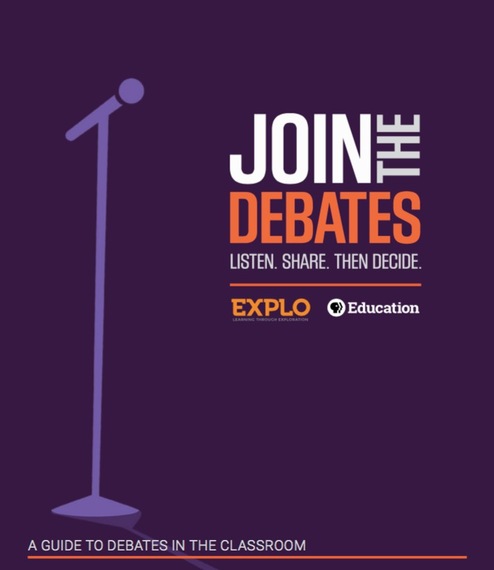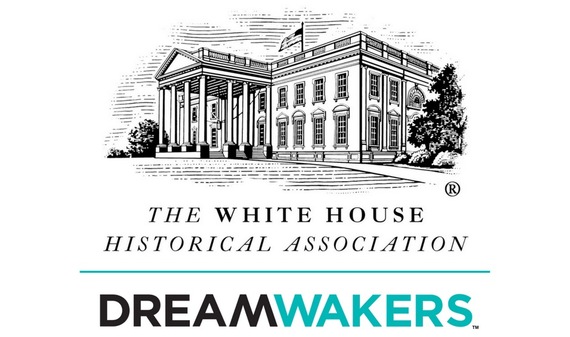"Why do I need to know this?"
It is a question posed daily by students to teachers across the country. Sometimes, the answer can seem a bit esoteric: "Yes, Johnny, you will need calculus in the real world." But providing an answer to pupils in today's civics classrooms should be far easier and direct since these kids are literally witnessing one of the most combative and contested presidential elections in history.
For many students -- a.k.a. our next generation of voters -- this campaign has sparked interest and raised questions about America's democratic process, making it a great opportunity to integrate real world election issues into class lessons. But how can budget and time-strapped teachers easily infuse current political events into their curriculums in ways that will both engage students and avoid stepping into a partisan minefield?
The answer: Go online.
Below are three ways to supplement existing curriculum and engage students around election season using free digital resources:
1. Join an Online Election Forum Moderated by The New York Times
The Times has launched a moderated online Election 2016 discussion forum called "Civil Conversation Challenge for Teenagers." From now through November 7, teens are invited to engage in respectful conversations on the Times site about major policy issues. The idea is not for students to submit polished essays on these topics; rather, they are encouraged to read the opinions of other students and respond to the arguments made. This approach fosters thoughtful peer to peer dialogues, and hones critical thinking and reading comprehension skills. "Students rarely seem read what others write, or respond to each other," the site explains. "For this challenge, we invite you to have a conversation, and we'll be 'listening in' as we moderate, and looking to find exchanges between students." What exactly is considered "civil?" The Times has provided a handy guide, which includes teaching activities for each of their guidelines: "Talking Across Divides: 10 Ways to Encourage Civil Classroom Conversation On Difficult Issues."
2. Host a Classroom Debate using PBS Education's Step-by-Step Guide
What better way to get your students fired up about this election than to ask them to stand up in front of their peers and defend their views in a classroom debate? PBS Education teamed up with EXPLO and the Commission on Presidential Debates to create a toolkit for educators, which includes information on past elections as well as ideas for facilitating a classroom debate. This is an exciting way for students to think through campaign issues while practicing formal debate procedure and public speaking. The site explains: "By listening, sharing, questioning, and reflecting, students develop skills critical to becoming thoughtful, responsible citizens." Click here to download the PBS Education Debate toolkit.
3. Video Chat with a Real-World Presidential Pro using DreamWakers
DreamWakers -- an education technology nonprofit that virtually connects diverse and dynamic real-world professionals with 4th-12th grade classrooms -- has teamed up with the White House Historical Association (WHHA) to host an "Election 2016: History In the Making" virtual series. From now until the end of November, DreamWakers and the WHHA will connect Civics and Social Studies classrooms across the country with current and former White House officials, top presidential historians, White House Correspondents in the media, inspirational public servants and policy wonks. The live connection between classrooms and the "real world" makes the impact of these sessions especially powerful. In order to ensure that as many students as possible have access to this unique content, DreamWakers this week launched a new YouTube video library, which includes an Election 2016 video playlist. You can check out a few example clips below, featuring CCTV White House Correspondent Yasmeen Alamiri, who hosted the first DreamWakers discussion of the series with group of fifth graders in California this past Tuesday. If you are a teacher working in a school where at least 50% of the student body is on free and reduced lunch, you can apply here to virtually connect diverse real-world leaders from across the country directly to your classroom. All teachers can click here to subscribe to the DreamWakers YouTube channel.*
--
*DreamWakers, an education nonprofit, is 1 of 10 finalists in the running for a $25,000 grant from the L'Oreal Paris Women of Worth program. To support DreamWakers' efforts to virtually connect more underserved classrooms to exceptional professionals, please cast a quick vote here by 10.28.16.



